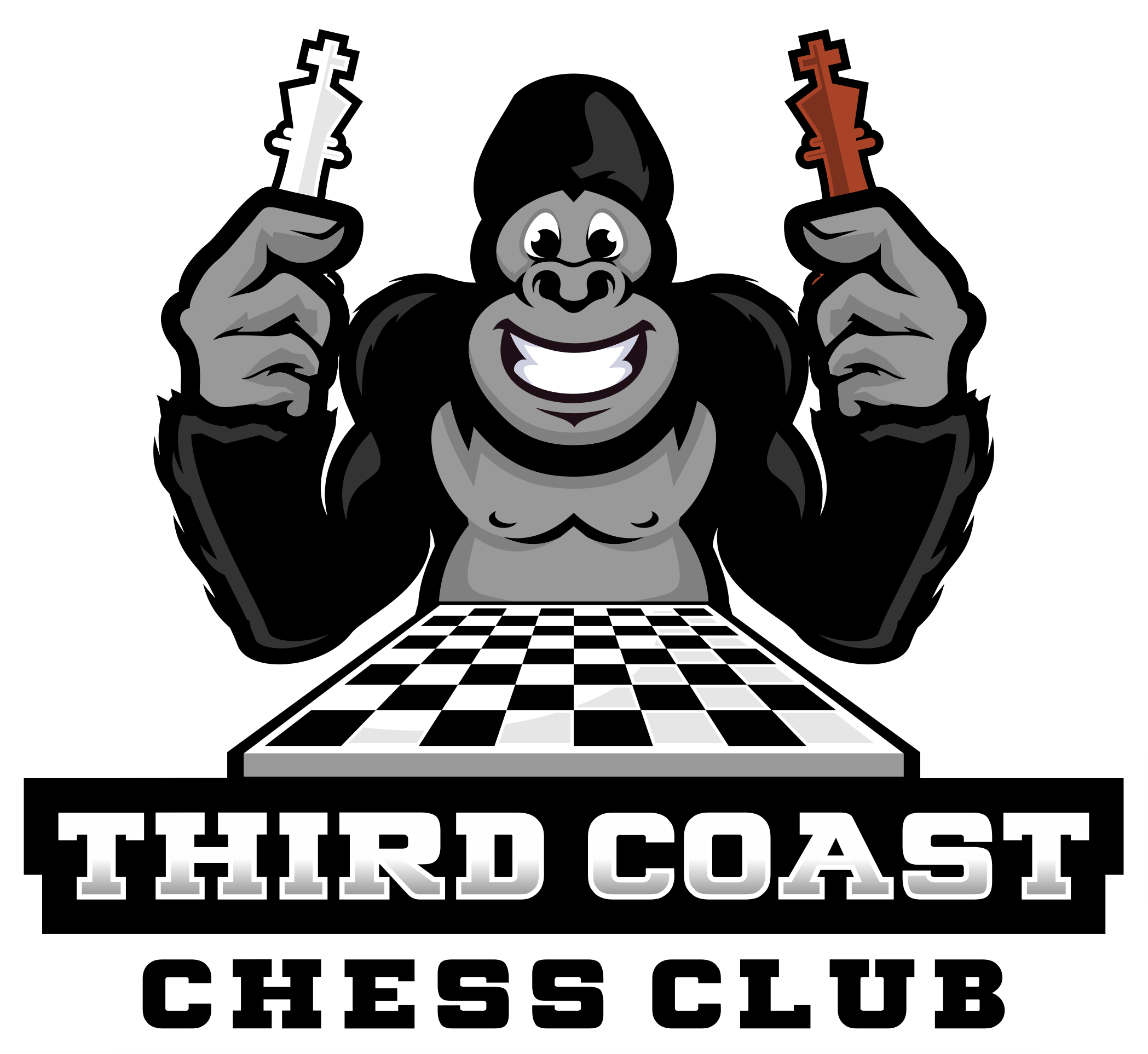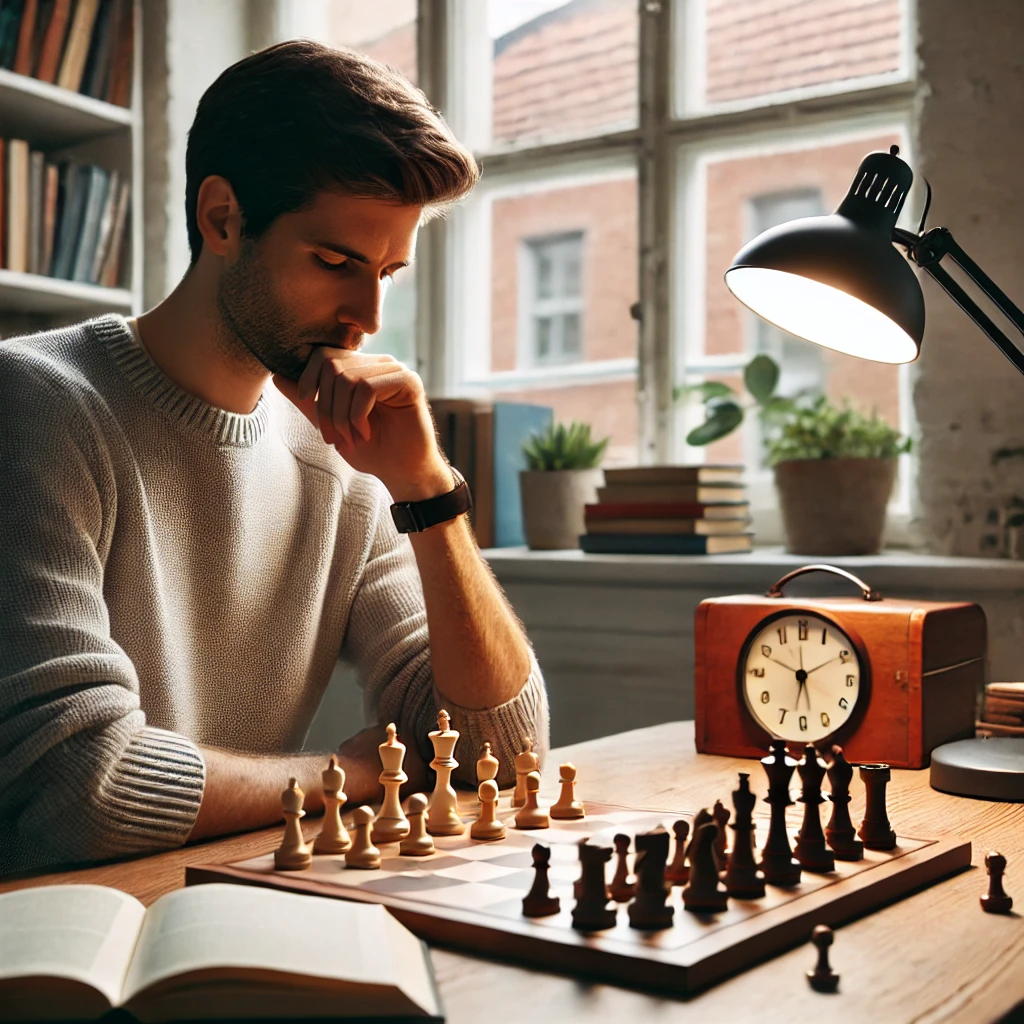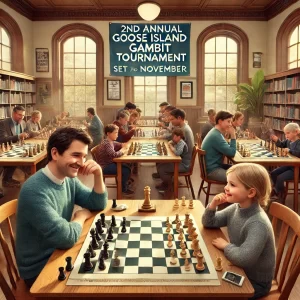While nothing beats improving your chess game by facing strong opponents, you can still make significant progress by studying and practicing on your own.
Stay Focused and Purposeful
Before diving into a chess book or study session, set your mind on learning. Engaging in any activity without intention can lead to wasted effort. It’s easy to skim through pages or watch tutorials without retaining much. Be deliberate in your approach, ensuring you absorb the knowledge needed to elevate your game.
Create an Optimal Study Environment
Find a quiet, comfortable place where you can concentrate without distractions. A supportive chair, a well-lit space, and a desk or table with room to spread out your chessboard and materials will help you focus. While some people can handle light background music, anything that pulls your attention—like talk radio or TV—will interfere with your ability to concentrate. Experiment and find what works best for you.
Libraries can be a good source of chess books, often written with clear instructions and visuals that break down complex ideas. These resources can be especially helpful if you’re just getting serious about your game.
Build a Consistent Practice Routine
Whenever you sit down to study or play, make sure your chessboard is set up properly—White square in the bottom-right corner for both players. Repetition in this simple routine helps reinforce basic habits that are key to your improvement.
Visualize Chess as Strategy in Action
Think of your chess pieces as military units in a strategic battle. The ultimate goal is to capture your opponent’s King. Your pawns, the foot soldiers, might be sacrificed to protect more valuable pieces, but they can also open doors for aggressive play. Your Rooks, with their straight-line movement, act as powerful siege towers, while the Knights, with their unique “L” shaped moves, serve as unpredictable cavalry. The Bishops represent far-reaching influence, controlling long diagonals.
The Queen, by far the most powerful piece, commands multiple directions. But even though the King is slow and vulnerable, the entire game hinges on his safety. A well-protected King is your best defense and your opponent’s worst nightmare.
Understand the Value of Each Piece
In a game, it’s essential to focus on moves rather than constantly evaluating the points value of each piece. But when you’re studying, remember that the Queen is worth nine points, the Rook five, and the Knight and Bishop each three. Pawns are only worth one point, but they can change the game in subtle, strategic ways. Keep your high-value pieces protected, but don’t overlook the importance of well-placed pawns that can shift the momentum.
Take Notes and Master Chess Terminology
When studying, it helps to write down key concepts or strategies on index cards. Understanding chess terms like “Gambit,” “Pin,” and “Perpetual Check” will give you a tactical advantage. Keep a notebook or use a digital tool to record important insights as you progress.
Use your chess books to focus on specific strategies. Skim headings and focus on actionable tips that can help you during gameplay. Don’t underestimate the power of your King—while often passive, he can still capture and turn the tide in tight situations.
Build Confidence and Manage Stress
One of the greatest challenges in chess is the mental pressure that comes with competitive play. It’s common to feel anxious before a big game or tournament, but physical activity like swimming, biking, or even a brisk walk can help calm your mind. Stay positive and remember that you’re building the skills necessary to succeed. Confidence comes from preparation and experience.
With the right mindset, effective study habits, and consistent practice, you’ll continue to sharpen your chess game—and your ability to handle the mental demands that come with it. Keep pushing forward, and trust in your journey to improvement.


